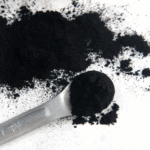What is Gilsonite for Adhesives and Sealants?
Gilsonite, also known as natural asphalt or uintaite, is a naturally occurring, solid hydrocarbon resin used as a performance-enhancing additive in adhesive and sealant formulations. Due to its high solubility in hydrocarbon solvents and exceptional bonding properties, Gilsonite has become an indispensable ingredient for many industrial, construction, and automotive applications.
Understanding Gilsonite in Adhesive Chemistry
Gilsonite functions as a tackifier, binder, and performance modifier. It is particularly valued for its:
-
Excellent adhesion to various surfaces
-
Enhanced cohesive strength
-
Resistance to moisture and chemical attack
-
Flexibility and elasticity
-
UV and thermal stability
When blended into sealants and adhesives, Gilsonite improves film formation, tack, durability, and environmental resistance, making it ideal for solvent-based and hot-melt systems.
Why Gilsonite is Used in Adhesives and Sealants
Superior Bonding Strength
Gilsonite improves adhesive grip on surfaces like concrete, metal, wood, rubber, and asphalt, increasing both initial tack and long-term adhesion.
Moisture and Weather Resistance
Its natural bitumen composition makes it highly waterproof and weather-resistant, ideal for outdoor or harsh environments.
Excellent Flexibility and Toughness
Sealants formulated with Gilsonite maintain elasticity even in temperature extremes, resisting cracking and aging.
Enhanced Thermal and UV Stability
Gilsonite helps adhesives withstand high temperatures and direct sunlight without losing bonding performance.
Cost-Effective Performance
As a natural, low-cost resin, Gilsonite can reduce the need for expensive synthetic materials while maintaining or even improving performance.
Typical Applications of Gilsonite in Adhesives & Sealants
Gilsonite is used in a wide range of commercial and industrial adhesive and sealant formulations, including:
-
Roofing mastics and flashing tapes
-
Hot melt adhesives (HMA)
-
Pressure-sensitive adhesives (PSA)
-
Construction sealants and caulks
-
Industrial joint fillers and crack sealers
-
Bitumen-based bonding agents
-
Automotive underbody coatings and sealants
Technical Characteristics
| Property | Description |
|---|---|
| Appearance | Black or dark brown brittle solid |
| Softening Point | 130–240°C (varies by grade) |
| Solubility | Soluble in aromatic and aliphatic solvents |
| Carbon Content | High (75–85%) |
| Compatibility | Hydrocarbon resins, synthetic polymers, oils |
One of the key advantages of using Gilsonite in adhesives and sealants is its ability to improve the bonding strength between substrates. When incorporated into adhesive formulations, Gilsonite acts as a natural tackifier, promoting adhesion and cohesion. This results in stronger bonds, better resistance to shear forces, and improved overall bond performance.
Gilsonite also offers excellent resistance to temperature variations, making it suitable for applications that require adhesives and sealants to withstand extreme environmental conditions. It can maintain its integrity and flexibility over a wide range of temperatures, ensuring that the adhesive or sealant remains effective and reliable.
Furthermore, Gilsonite enhances the resistance of adhesives and sealants against moisture and chemicals. It acts as a barrier, preventing water penetration and protecting the bond or seal from degradation. This is particularly important for applications in wet or corrosive environments, where long-term durability and resistance to aging are required.
In addition to its role in improving bonding strength and resistance, Gilsonite also contributes to the viscosity control and stability of adhesives and sealants. It helps in maintaining the desired consistency of the formulation, preventing sagging or dripping during application. This ensures ease of use and precise application, resulting in better coverage and a more effective bond or seal.
When using Gilsonite in adhesives and sealants, it is important to consider the specific formulation, desired performance objectives, and compatibility with other adhesive or sealant components. The appropriate dosage and blending process may vary depending on these factors, and it is recommended to follow the manufacturer’s guidelines or consult with experts in adhesive and sealant formulation.
Gilsonite vs. Synthetic Resin Additives
| Feature | Gilsonite | Synthetic Resins |
|---|---|---|
| Natural Source | Yes | No |
| Cost | Low to Moderate | Moderate to High |
| Water Resistance | Excellent | Varies |
| UV & Heat Stability | High | Moderate to High |
| Eco-Friendliness | Natural, lower VOCs | Petrochemical-based |
| Application Flexibility | Wide Range | Depends on formulation |
Recommended Dosage and Compatibility
-
Dosage: 5%–20% by weight depending on desired properties
-
Compatible With:
-
Hydrocarbon and petroleum resins
-
Styrene-butadiene rubber (SBR)
-
Alkyds and EVA
-
Aromatic and aliphatic solvents
-
-
Not Recommended For: Water-based systems unless chemically modified
Frequently Asked Questions (FAQ)
What is Gilsonite used for in adhesives?
Gilsonite improves bond strength, waterproofing, flexibility, and thermal resistance in both solvent-based and hot melt adhesive formulations.
Is Gilsonite safe for indoor adhesive applications?
Yes, when properly processed and blended, Gilsonite is safe for indoor and industrial use. It emits fewer VOCs than many synthetic alternatives.
Can Gilsonite replace petroleum resins?
Yes, Gilsonite can partially or fully replace petroleum-based resins in many formulations, reducing cost and enhancing environmental compatibility.
Is Gilsonite compatible with polymer sealants?
Yes. Gilsonite blends well with several elastomers and polymers used in sealants, including SBR, EVA, and certain block copolymers.
Conclusion
Gilsonite is a valuable additive for enhancing the bonding strength, durability, and performance of adhesives and sealants. Its unique properties, including temperature resistance, moisture resistance, and viscosity control, make it an excellent choice for adhesive and sealant manufacturers.
Gilsonite in adhesives and sealants is more than just a filler—it’s a performance enhancer. It offers a powerful combination of natural durability, strong bonding, water resistance, and environmental resilience. Whether you are formulating products for construction, automotive, roofing, or industrial sealing, Gilsonite is a proven, reliable, and cost-effective solution.
By incorporating Gilsonite into formulations, stronger bonds, improved resistance, and enhanced overall performance can be achieved, resulting in reliable and long-lasting adhesive and sealant applications.
Explore how Gilsonite works in adhesives and sealants, enhancing bond strength, flexibility, and resistance. Discover its uses in construction, automotive, and industrial formulations.
-
Natural resin adhesive binder
-
Gilsonite adhesive performance enhancer
-
Moisture-resistant sealing additive
-
Construction grade adhesive resin
-
Thermal-stable sealing compound
✅ Looking to Formulate Better Adhesives and Sealants?
We supply high-quality Gilsonite grades specifically engineered for adhesives and sealants.
🔹 Increase bond strength
🔹 Reduce formulation costs
🔹 Improve thermal and UV resistance
Contact us for custom sizing, ash content, and packaging. For more information or to place an order, please contact PUB-Ltd sales team @ Contact Us. PUB-Ltd as your Gilsonite Supplier.
Our Expert will be in touch with you to guide you about the Use of Gilsonite, that can be produced according to your project requirements.
At Pars Universal Bitumen, we are committed to delivering high-quality Gilsonite. Our mission is to assist industries worldwide in achieving their performance and sustainability objectives. To learn more about our offerings and how Gilsonite can revolutionize your manufacturing processes, we invite you to reach out to us.





